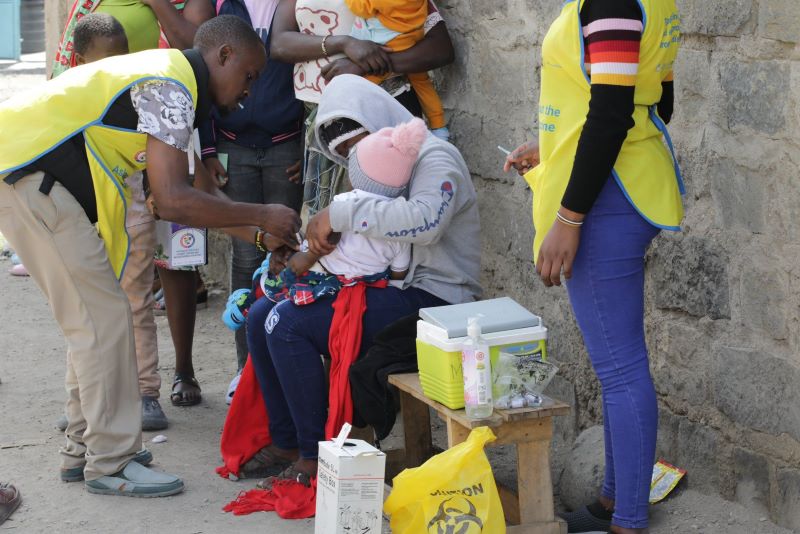Ethiopia’s debt ‘unsustainable,’ World Bank-IMF warn as country remains in debt distress

The assessment highlights that Ethiopia’s repayment risks are aggravated by “bunching of debt service in the near to medium term” and by the sharp decline in external financing during and after the Tigray war.
A new joint World Bank–IMF assessment has delivered a stark warning on Ethiopia’s economic outlook, declaring the country’s external debt “unsustainable” and confirming that the government is already in debt distress.
The report, approved by senior officials from both institutions, said: “Ethiopia’s debt is assessed to be unsustainable, mainly due to protracted breaches of exports-related external debt indicators and is based on a weak Debt Carrying Capacity.” It added that the country has been in debt distress since it missed a Eurobond interest payment in December 2023.
More To Read
- Africa’s agricultural exports are losing ground: Four key interventions that could lift sector again
- Faith under fire: How social media fuels rising attacks on religions, followers in Ethiopia
- World Bank sounds alarm as Kenya’s labour market weakens, wages fall and informal jobs surge
- World Bank upgrades Kenya’s growth outlook to 4.9 per cent, warns of elevated risks
- Daua Dam, irrigation masterplan gain momentum after high-level talks in Nairobi
- Residents to receive Sh500 million compensation for Isiolo-Garbatulla-Modogashe road project
The assessment highlights that Ethiopia’s repayment risks are aggravated by “bunching of debt service in the near to medium term” and by the sharp decline in external financing during and after the Tigray war.
The authors stress that “timely implementation of the authorities’ reform agenda and debt relief from external creditors are required to alleviate liquidity pressures and restore debt sustainability.”
According to the joint analysis, the government reached an agreement in principle with its official creditors in March 2025 under the G20 Common Framework. A memorandum of understanding on the debt treatment is expected soon, which, if fully implemented, would close financing gaps and reduce the risk of debt distress to moderate levels by 2027/28, when the IMF program ends.
The report warns that without successful restructuring and reforms, Ethiopia faces “both liquidity and solvency pressures,” as debt service obligations continue to outpace export revenues and government revenues. Stress tests show the economy remains highly vulnerable to export and depreciation shocks.
While Ethiopia’s public and publicly guaranteed debt has declined as a share of GDP since 2021, this is largely due to nominal growth and the suspension of new disbursements from key lenders.
The report cautions that these declines mask a fragile situation, underlined by the default on the country’s $1 billion Eurobond in December 2024.
In January 2025, the IMF Executive Board met to assess Ethiopia’s progress under its $3.4 billion (Sh439 billion) Extended Credit Facility (ECF). While the IMF stopped short of confirming an agreement in principle on debt restructuring at the time, it acknowledged that “key milestones” had been achieved under the Common Framework and approved a second disbursement of $250 million (Sh32 billion). The IMF praised Ethiopia’s reform drive, including foreign exchange liberalisation, and noted easing pressure on parallel market exchange rates.
By March 2025, Ethiopia’s Ministry of Finance announced that an agreement in principle had been reached with official creditors to restructure $8.4 billion (1.09 trillion) of the country’s $12.4 billion (Sh1.6 trillion) external debt. The restructuring was expected to improve the country’s bargaining position with private creditors, including bondholders.
In April 2025, Reuters reported that the official creditor committee, co-chaired by China and France, was close to finalising a deal that would give Ethiopia more time to repay its debt without Ethiopia’s proposed 18 per cent haircut, which was rejected by bondholders.
Minister of Finance Ahmed Shide told lawmakers in July that Ethiopia was advancing debt restructuring negotiations with creditor countries in an effort to secure $3.5 billion in debt relief.
Addressing the House of People’s Representatives during the presentation of the 2025/26 draft federal budget, the Minister said the government was nearing an agreement but had not yet finalised or signed any deal. “We are in the final stages of negotiation with our creditor countries. The agreement will be signed soon,” Minister Ahmed said.
The latest report by the World Bank and IMF warned that Ethiopia’s path out of distress depends on external debt relief, fiscal reforms, and export diversification.
“Successful completion of debt treatment and implementation of the reform agenda would restore debt sustainability and allow exit from debt distress,” the joint assessment said.
Top Stories Today














































